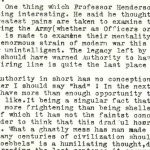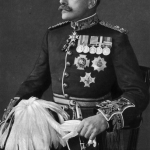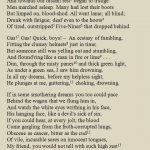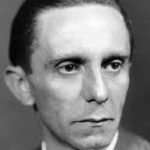Graham focuses again on his personal experience of war from conflicts past, and shares a conversation he has had recently in which mental health is discussed and the idea of it being equally, if not more important than physical fitness was suggested. As highlighted in a previous post, the concept of mental health before the First World War was not something that was widely considered or understood at this time, with the effects of “shell shock” being treated and research undertaken only towards the latter stages of the war. Appearing to consider the matter carefully, Graham concludes that this approach is “unintelligent”, stating that “the legacy left by the last war of nervous wrecks should have warned Authority to have more sense”.
Graham continues to cast aspersions on those in “Authority”, and suggests that whilst so many important decisions were made by a few in command, that those individuals were rarely present in areas of real danger – “unhappily the firing line is quite the last place where Authority need be looked for!” His comments suggest that he perhaps feels that there was a lack of understanding or blatant disregard of the tragic consequences that many of the decisions taken had on the men fighting, whether through loss of life or through post traumatic stress subsequently due to the things they had seen and done. Whilst many in positions of authority were highly respected by their men and “lead by example”, it is a common accusation, like in many conflicts, of the avoidance of participation in front line action from those in higher ranks. Warnings against the ideas of blind patriotism and “dulce et decorum est pro patria mori” were also more eagerly stressed in this era of warfare as a caution for generations to come.
Historians have long debated the further factor of the role that poor tactics, misplaced ambition or political manoeuvring played on countless occasions in the excessive loss of life, such as during The Battle of the Somme or Passchendaele. One such figure who came to represent these sentiments was Field Marshal Douglas Haig, initially hailed as a hero after the war, but increasingly criticised for his leadership as the legacy of the war became more evident over time.
Back to the present day, Thomas concludes this entry contemplatively by stating, “what a ghastly mess man has made of God’s gifts. To think that many centuries of civilization should but have sufficed to produce a “Goebbels” is a humiliating thought, dont you think?” Having expressed such opinions before the outbreak of war, we wonder what Thomas’ thoughts would have been of Goebbels et al come 1945?
Sources used:
www.wikipedia.org



